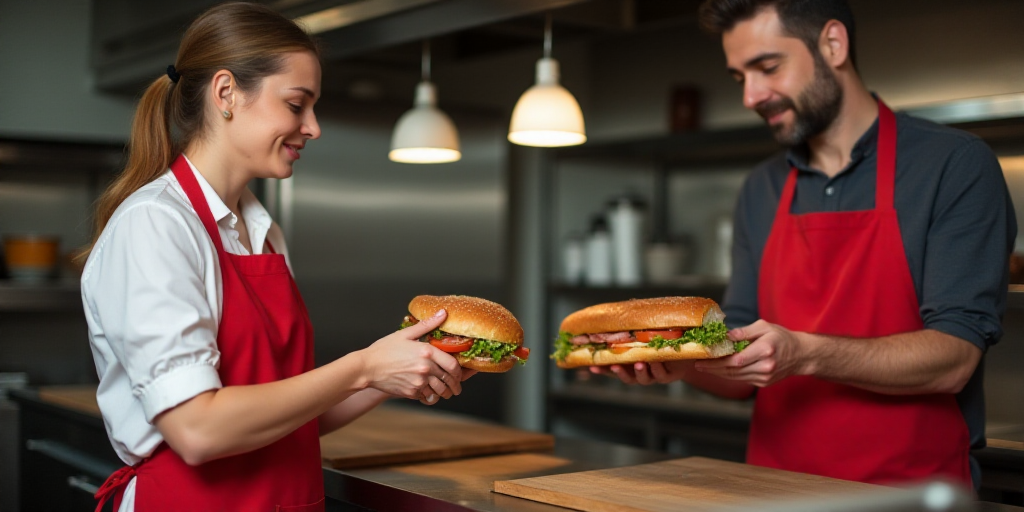The Burger Business: A Thriving Industry in Mexico
Every year, the beloved burger gets its day of celebration on May 28, known as the International Burger Day. This popular and versatile dish caters to all tastes, from vegetarians to carnivores. In Mexico, burgers are a favorite food, especially on weekends.
In 2023 alone, over 1.5 billion burgers were sold in the country, with a market value of 35,308 million pesos, according to Euromonitor International. Both large and small businesses drive burger consumption through delivery platforms like DiDi, generating 440,000 orders per month, with Sundays being the busiest days.
Mexico has 69,053 establishments offering burgers, as registered by the National Statistical Directory of Economic Units (Denue). Starting a burger business can be profitable, with various startup options depending on your target audience and budget, ranging from an aluminum cart to a food truck, a storefront, or a franchise.
Tips for Starting Your Burger Business
While there are numerous opportunities in the burger business, several key factors should be considered before launching your venture. Here are some tips to help you get started:
Location and Budget
Analyze your budget and location: The first step is to assess your budget and the area, as this will determine the type of business and help you understand if there’s competition in the location. High competition may make it challenging for your business to be profitable.
Choose a strategic location, whether it’s near office buildings, schools, or at sports events or concerts.
Value Proposition
Establish a unique concept: Developing a distinct concept will help you stand out from competitors and reach your target audience. If you have a larger budget, consider an innovative and attractive concept, like a retro 80’s themed restaurant. Alternatively, you could offer vegan burgers, thick-cut meat, or a unique ingredient like guacamole.
Storefront vs. Food Truck
Aluminum cart or food truck: If you’re starting with limited funds or want to test the area, an aluminum cart (priced around 15,000 pesos) is a good option. Food trucks range from 3,000,000 to 2,500,000 pesos and offer the advantage of mobility, allowing you to move to high-traffic areas.
A storefront is ideal if the area has high foot traffic, minimizing the need for extensive marketing. Rent depends on location and size, typically secured through a one-year contract.
Equipment and Supplies
Essential equipment: Consider the necessary tools for starting your business, such as a gas tank, basic utensils (tongs, knives, plates, cups, containers, condiment dispensers), and a refrigerator. This can be a significant upfront investment.
Initial inventory: Purchase ingredients for preparing burgers, including buns, meat, cheese, bacon, sauces, beverages, and packaging if you plan to offer delivery services.
Additional expenses: Factor in other costs, such as gas, electricity, rent, salaries, and cleaning supplies, when setting your burger prices.
Permits and Licenses
Obtain necessary permits: Food vending permits vary by region, but ensure you’re registered with the Mexican Tax Administration Service (SAT) as either an individual with a business activity or a moral entity. If you plan to sell alcoholic beverages, additional permits will be required.
Key Questions and Answers
- Q: How long does it take for a burger business to become profitable? A: It typically takes between 20 and 24 months for a burger business to become profitable. Proper financial management and reinvesting early earnings are crucial during the initial stages.
- Q: What are the essential startup costs for a burger business? A: Startup costs include location analysis, equipment (gas tank, utensils, refrigerator), initial inventory (meat, cheese, buns, sauces), and additional expenses like rent, utilities, and salaries.
- Q: How can I differentiate my burger business from competitors? A: Develop a unique concept, offer specialized ingredients, or cater to niche markets like vegan or gluten-free options.
- Q: What permits and licenses are required to sell food? A: Obtain necessary permits from the SAT, and consider additional licenses if you plan to sell alcoholic beverages.






